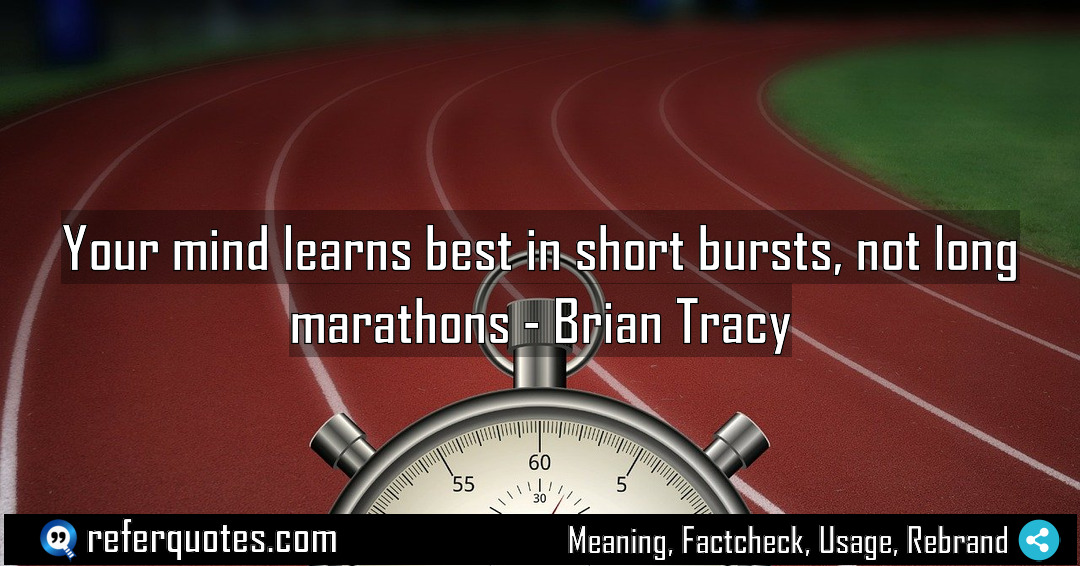Your mind learns best in short bursts… it’s a game-changing insight from Brian Tracy and Colin Rose. Forget those all-nighters; science shows our brains absorb more in focused sprints. Let’s break down why this approach works so well.
Share Image Quote:Table of Contents
Meaning
The core message is simple but profound: Intense, focused periods of learning are far more effective than long, drawn-out sessions. It’s about quality of focus over quantity of time.
Explanation
Look, I’ve seen this in action for years. Our brains aren’t designed for marathon study sessions. They’re like a high-performance processor that overheats. After about 25-50 minutes of intense focus, your attention span plummets. You’re technically “studying,” but you’re not retaining anything. A short burst, however, leverages your peak concentration. Then, the real magic happens during the break. That’s when your brain consolidates the information, moving it from short-term to long-term memory. It’s not lazy; it’s strategic.
Quote Summary
| Context | Attributes |
|---|---|
| Original Language | English (3668) |
| Category | Education (260) |
| Topics | concentration (2), focus (155), study habits (2) |
| Literary Style | didactic (370), scientific (57) |
| Emotion / Mood | calm (491), realistic (354) |
| Overall Quote Score | 80 (256) |
Origin & Factcheck
This wisdom comes straight from Brian Tracy and Colin Rose’s book, Accelerated Learning Techniques for Students, which was first published in the United States. You might see similar ideas floating around, but this specific phrasing is theirs—it’s a cornerstone of the accelerated learning methodology they championed.
Attribution Summary
| Context | Attributes |
|---|---|
| Author | Brian Tracy (375) |
| Source Type | Book (4032) |
| Source/Book Name | Accelerated Learning Techniques for Students (59) |
| Origin Timeperiod | Contemporary (1615) |
| Original Language | English (3668) |
| Authenticity | Verified (4032) |
Author Bio
Brian Tracy, a prolific author gained global reputation because of his best seller book list such as Eat That Frog!, Goals!, and The Psychology of Selling, and created influential audio programs like The Psychology of Achievement. He is sought after guru for personal development and business performance. Brian Tracy International, coaches millions of professionals and corporates on sales, goal setting, leadership, and productivity.
Official Website |Facebook | X | Instagram | YouTube |
Where is this quotation located?
| Quotation | Your mind learns best in short bursts, not long marathons |
| Book Details | Publication Year/Date: 1999; ISBN: 978-1576751402; Last Edition: Berrett-Koehler Publishers, 1999; Number of Pages: 176 |
| Where is it? | Chapter 16: The Power of Breaks, Page 125 / 176 |
